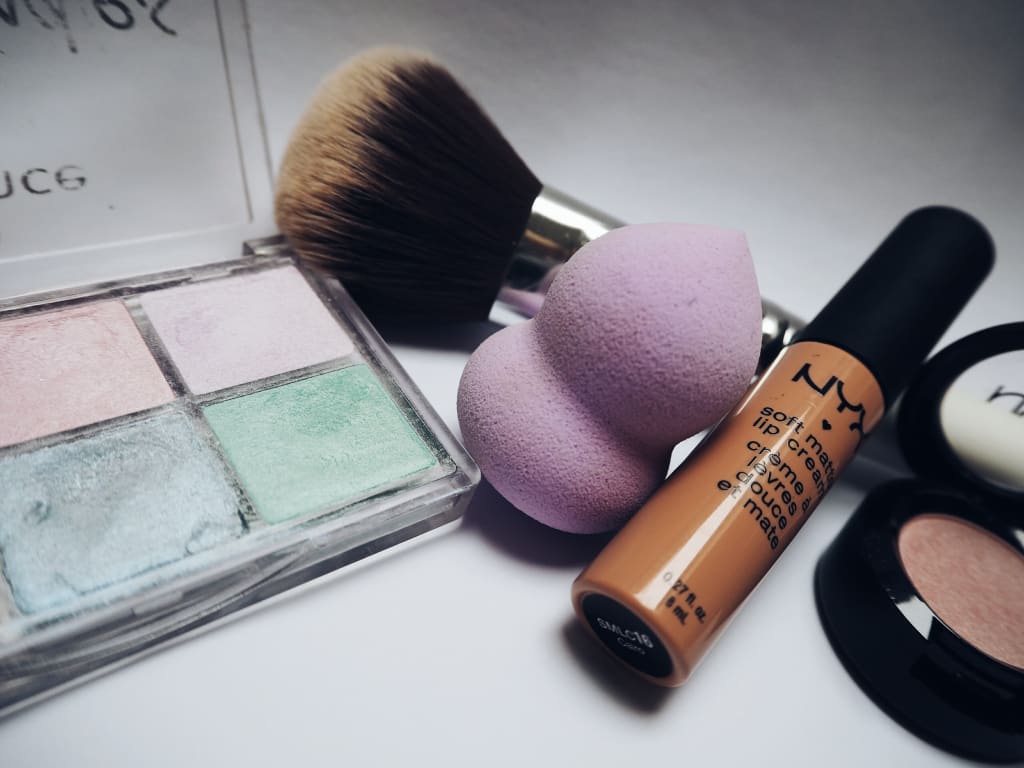Weatherproof Your skin: Expert Tips For adjusting Your Skincare Routine
skincare

A goal that many people have is to keep their skin healthy and strong. To reach this goal, you need a good skincare routine that is tailored to your face type and the weather conditions at the time. In this talk, we’ll talk about how important it is to have a skin care routine, how to figure out your skin type, what common skin problems are caused by the weather, how to change your skin care routine for the different seasons, the most important skin care products for all weather conditions, how to protect your skin from harsh weather, home remedies for weather-related skin problems, professional skin care treatments for weatherproofing your skin, and common skin care mistakes to avoid. By putting these tips into action, you can get and keep healthy, glowing skin all year long.
Importance of a Skincare Routine
- A skincare program is a set of things you do and things you use to clean, feed, and protect your skin. Having a regular skin care practice is important for a number of reasons:
- Cleaning: Cleaning your skin regularly helps get rid of dirt, oil, pollution, and makeup that can build up on its surface. This keeps your skin from getting dull, clogged pores, and acne.
- Hydration: Moisturizing and hydrating products are often part of good skin care practices. This help keep the skin moist, which improves its elasticity, makes fine lines and wrinkles less noticeable, and gives the face a healthy look.
- Protection: Sun protection products, like sunscreen, are often used as part of skin care practices. This keeps the skin safe from UV rays, which can cause sunburn, early aging, and even skin cancer.
- Prevention: Skin problems like acne, dryness, sensitivity, and redness can be avoided with regular skin care. By taking care of these problems right away, you can keep your face healthy in the long run.
Understanding Your Skin Type
To make a good skin care plan, you need to know what type of skin you have. Most people have one of these skin types:
- Normal: Normal skin makes the right amount of oil, has small pores, and feels smooth. It is neither too dry nor too oily, and it tends to be less sensitive or prone to spots.
- Dry: Skin that is dry doesn’t have enough water, so it often feels tight, rough, or flaky. It may look dull and may get fine lines and wrinkles more easily.
- Oily: Oily skin makes too much sebum, which makes it shiny, makes pores bigger, and makes acne more likely to happen.
- Combination: Someone with combination skin has both oily and dry spots. The T-zone, which includes the forehead, nose, and chin, is usually oilier than the lips and other areas.
- Sensitive: Skin that is sensitive is more likely to get irritated, turn red, or have other reactions to certain goods or things in the environment. It needs skincare items that are gentle and soothing.
Identifying Common Weather-Related Skin Concerns
Different kinds of weather can have different effects on the skin. To keep your face healthy all year, you need to figure out what these problems are and fix them. Here are some common skin problems caused by the weather:
- Dryness: Cold weather and low humidity can take the wetness out of your skin, leaving it dry, flaky, and tight.
- Dehydration: Hot and muggy weather, sweating a lot, and being in the sun can all dry out the skin, which can lead to dehydration. This can make your skin look dull and make fine lines look worse.
- Sun damage: UV rays can cause sunburn, early aging (wrinkles, fine lines, and age spots), and raise the risk of skin cancer.
- Sensitivity: Extreme temperatures, wind, and low humidity can make the skin more sensitive and more likely to get red, irritated, and inflamed.
- Extra Oil: Humid conditions can cause the skin to make more oil, which can lead to a greasy appearance, clogged pores, and acne.

Adjusting Your Skincare Routine for Different Seasons
Changes in the weather can cause skin problems, so it’s important to change your skincare practice with the seasons. Think about the following rules:
- Winter: When it’s cold, pay attention to staying hydrated and staying safe. Change to a heavier moisturizer to fight dryness, and use a gentle cleanser to keep the skin’s natural oils from being stripped away. Even in winter, UV rays can still hurt the skin, so don’t forget to put on sunscreen.
- Spring: As the weather gets warmer, keep hydration and safety at the top of your list. Think about adding water-based items that are light to your routine. Exfoliating can help get rid of the dead skin cells that have built up over the winter, making your face look brighter.
- Summer: When it’s hot and muggy, it’s important to stay hydrated and protect yourself from the sun. Use moisturizers that are light and don’t contain oil, and use a broad-spectrum sunscreen with at least SPF 30 every day. Consider using items with antioxidants to fight the free radicals that come from being in the sun.
- As the weather gets cooler in the autumn, pay attention to mending and feeding your skin. Think about adding products with hyaluronic acid and ceramides to keep moisture in the skin and fix its barrier. Exfoliate to get rid of any sun damage from the summer and get your face ready for the drier months ahead.
Essential Skincare Products for All Weather Conditions
No matter the weather, you need the following skincare items to keep your skin healthy all year:
- cleaner: Choose a cleaner that is gentle and right for your skin type to get rid of dirt and oil without taking away the skin’s natural oils.
- Moisturizer: To keep your skin fresh and healthy, you need to use a moisturizer that is right for your skin type.
- Sunscreen: Use a broad-spectrum sunscreen with at least SPF 30 to protect your face from UV rays. Use a lot of it and repeat it every two hours, especially when you’re outside.
- Exfoliator: Products that exfoliate, like chemical exfoliants or gentle scrubs, help get rid of dead skin cells and make the face smoother. Use them once or twice a week, based on how sensitive your skin is.
- Antioxidants: Products with antioxidants, like green tea extract or vitamin C, can help protect the skin from damage from the environment and make it look younger.
Tips for Protecting Your Skin from Harsh Weather Elements
Think about the following ways to protect your face from harsh weather:
- Wear Protective Clothes: Wear hats, sunglasses, and clothes that cover your face to protect yourself from the sun. This is very important when it’s hot and sunny outside.
- Stay Hydrated: Drink a lot of water throughout the day to keep your body and face hydrated from the inside out.
- Avoid Hot Water: Don’t take too many hot showers or baths, because hot water can strip the natural oils from your skin and make it even drier.
- Use a humidifier during dry weather to add wetness to the air and keep your skin from drying out.
- Be aware of how you heat your home. During the winter, central heating systems can dry out the air, which can cause your skin to get dry. Use a fan and don’t stand too close to direct sources of heat.
DIY Remedies for Weather-Related Skin Issues
If you have skin problems because of the weather, you can try these home treatments to help: Use a face mask made with natural ingredients like honey, aloe vera, or avocado to keep your skin hydrated. These ingredients can help the face get more moisture and be healthy. Aloe vera juice or a cool compress can help soothe skin that has been burned by the sun. Stay out of the sun until your skin has healed. Gently exfoliate and get rid of dead skin cells, make a homemade scrub with sugar or coffee grounds and a moisturizing base, like coconut oil or honey. To calm redness and reduce irritation, use a cold chamomile tea bag or a mixture of plain yogurt and cucumber slices.
Professional Skincare Treatments for Weatherproofing Your Skin
In addition to normal skin care, professional treatments can help protect your skin from the weather:
- Chemical Peels: A chemical peel treatment can help exfoliate the skin more deeply, improving texture, lowering hyperpigmentation, and giving the skin a healthier look.
- Hydrating facials deeply hydrate and feed the skin, which helps fight dryness and restore the skin’s natural moisture balance.
- Laser treatments: Sun damage, fine lines, and wrinkles are just some of the skin problems that can be fixed with laser treatments. They can help the skin look younger and make the skin tone more even.
- Microdermabrasion is a treatment that uses a machine to gently remove the top layer of skin. This makes the skin smoother and lighter. It can help with things like sun damage and light acne scars.
Common Mistakes to Avoid in Your Skincare Routine
Avoid the following common skin care mistakes to keep your skin healthy and strong all year:
- Using strong Products: Don’t use strong cleansers or skin care products with irritating ingredients, as they can strip the skin and throw off its natural balance.
- Over-exfoliating: Exfoliating is important, but too much of it can cause irritation and damage the protective layer of the skin. Follow the rules for how often you should exfoliate based on your skin type.
- Don’t forget to wear sunscreen, even when it’s dark or cold outside. UV rays can still cause damage to the skin that can last for a long time.
- Using dirty makeup brushes: You should clean your makeup brushes regularly to keep germs and dirt from building up, which can cause acne and skin irritation.
- Ignoring Lifestyle Factors: Don’t forget that things like a balanced diet, enough sleep, managing stress, and staying hydrated all play a big role in the health and appearance of your face as a whole. Use a whole-person approach to skin care.
Conclusion: Embracing Healthy and Resilient Skin All Year Round
To keep your skin healthy and strong, you need a beauty routine that works well and is tailored to your skin type and the weather. By knowing your skin type, recognizing common weather-related skin problems, changing your skincare routine for different seasons, using essential skincare products, protecting your skin from harsh weather elements, using DIY remedies, thinking about professional skincare treatments, and avoiding common mistakes, you can have healthy, glowing skin all year long. Remember that consistency and a whole-body approach are the keys to getting the best results from skincare. If you put the health and well-being of your skin first, you’ll be repaid with a glowing complexion that lasts.
About the Creator
Abby blasius
I am a passionate content creator with a strong focus on health and wellness. While my educational background lies in a Bachelor of Accounting and Finance, it is my innate desire to help people feel good about themselves in mind, body&soul
Enjoyed the story? Support the Creator.
Subscribe for free to receive all their stories in your feed. You could also pledge your support or give them a one-off tip, letting them know you appreciate their work.






Comments
There are no comments for this story
Be the first to respond and start the conversation.